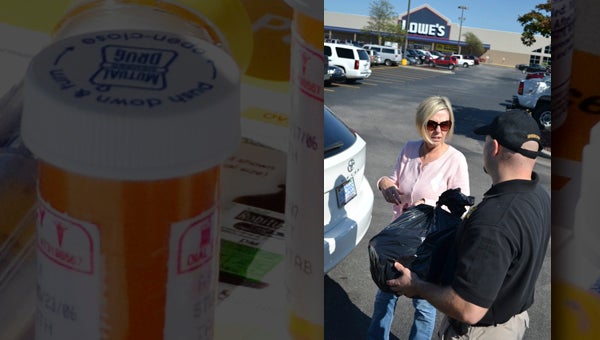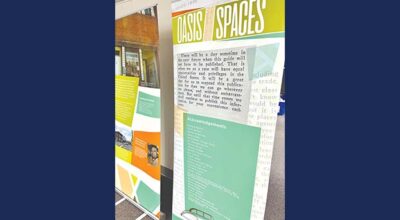Prescription disposal made easy with OMD
Published 4:44 pm Friday, September 19, 2014

FILE PHOTO | DAILY NEWS
INVENTORY: At Operation Medicine Drop events, the dosage units of medications and which category of controlled substance they fall under are recorded, then the medications are tossed into a large cardboard box. Once that box is filled, it’s sealed permanently.
Those in the market to unload unused and unwanted medications have the opportunity next week during Operation Medicine Drop, a statewide initiative to dispose of prescription drugs the right way.
Next Saturday in Washington, from 10 a.m. to 2 p.m. at Lowe’s Home Improvement on Carolina Avenue, the Beaufort County Sheriff’s Office drug unit investigators will be collecting medications from the public and at CVS on John Small Avenue, officers with the Washington Police Department will be doing the same. Dropping off medications is as simple as driving up to the collection point at the rear of the parking lot and handing them over — no questions asked, according to Investigator Greg Rowe, the drug unit’s diversion officer.
OMD is an NCSafekids.org initiative, established to keep potentially dangerous prescription drugs out of the hands of children. The twice yearly event serves a greater purpose: disposing of these medications properly means harmful pharmaceuticals don’t end up in landfills, or being flushed down toilets, by which they can enter area waters, including drinking water. For investigators with the sheriff’s office, getting rid of the meds is also a way to safeguard against crime—those in search for a quick buck made from prescription drug sales or a quick fix to satisfy their own addiction will resort to crime.
“People have all this (medication), and they don’t realize a lot of crime in the area is related to drugs,” Rowe said. “Something like 85 to 87 percent of crimes are drug-related.”
Getting unused prescriptions and other medications out of home medicine cabinets means they’re no longer in danger of ending up on the streets or abused by the addicted. In the U.S., prescription drugs — painkillers — have surpassed heroin and cocaine combined as the top cause of overdoses every year.
The dangers of prescription meds led the sheriff’s office to install a permanent drug drop box in the lobby of its Market Street location. Rowe said the numbers have made it worth the investment. In the past year, 149,886 dosage units (approximated), weighing an estimated 286.5 pounds, have been collected and burned at the county incinerator.
At OMD events, the dosage units of medications and which category of controlled substance they fall under are recorded, then the medications are tossed into a large cardboard box. Once that box is filled, it’s sealed permanently.
“Once they’re taped up at the site, we never open them again,” Rowe said.
The medications are later disposed of at the county site during a dual-burn process that incinerates box contents at 1,300 degrees, Rowe said.
Rowe encouraged anyone with any type of old, unused or unneeded medications, including veterinary prescriptions, to drop them off next Saturday, as a matter of safety — and why law enforcement makes it such an easy process, Rowe said.
“Nobody has to get out of their car,” Rowe said. “Drive up, we’ll take them no questions asked, and roll on.”





